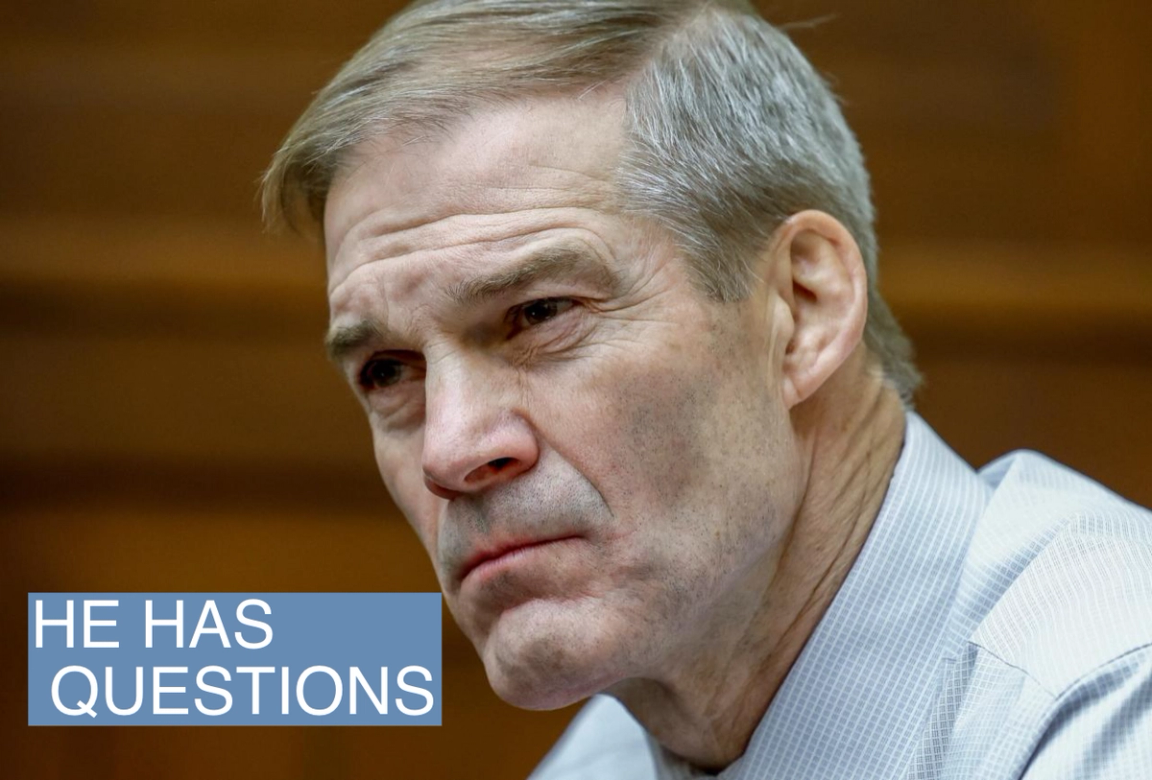 REUTERS/Evelyn Hockstein REUTERS/Evelyn HocksteinTHE NEWS The day that Kevin McCarthy lost his first vote to become speaker, Fox’s Tucker Carlson decided to lead his nightly program with a list of demands the Californian would have to fulfill if he ever wanted the gavel. Tops on the list? A new committee to look into the “weaponization of government,” styled after Congress’s famous Church Commission that looked into FBI abuses in the 1970s. The TV host told viewers that it should be led by Kentucky Rep. Thomas Massie, an affable libertarian who came up in the Tea Party era. The new committee, modeled on the 1975-1976 Church Committee that probed abuse by foreign surveillance agencies, was created this week after the negotiations between House Speaker Kevin McCarthy and GOP rebels who’d opposed him. It has the power to issue subpoenas even when they overlap with “ongoing criminal investigations,” which could become especially relevant as President Biden and Donald Trump are now facing their own special counsels. Judiciary Chairman Jim Jordan, who will oversee the new committee, sent a letter Friday to DOJ demanding answers on both probes. In fact, House leaders were already moving to enact a version of the “weaponization” committee, but conservatives secured additional commitments that they hope will give them the resources, security clearance, and scope to put them on par with the Democratic-led select committee that investigated January 6th. In a floor speech announcing its creation, Jordan cited the FBI’s interactions with Twitter and arrests of anti-abortion activists as examples of topics they planned to dig into. “We don’t want to go after anyone,” he said. “We just want it to stop.” That worries Democrats, who predict that the GOP will go on fishing expeditions any time Fox News hosts or Donald Trump’s allies urge them to. They’re especially concerned about a push to “investigate the investigators” as retaliation against officials who looked into wrongdoing in the Trump administration. “The facts speak for themselves,” said California Rep. Ted Lieu, a Democrat who sits on the House Judiciary Committee. “You had multiple convictions of Trump associates because they violated federal law. There’s no indication to me that the FBI was doing any of that for political reasons. They were doing it based on the facts presented.” Massie, who is now expected to be seated on the committee, said that Democratic critics were misguided. “I think they’re going to be eating crow if they call it a tinfoil hat committee, and six months or 18 months into this we find out stuff that is appalling to their constituents as well as ours,” said Massie. “And I think it’s a mistake to say that the federal government’s infallible, and that we don’t need to watch over them.” DAVID’S VIEW The new committee combines two priorities from different wings of the GOP: Massie’s libertarian skepticism of the security state, and the post-Trump conservative movement’s conviction that Trump was railroaded by a permanent deep state. On the right, one of the first calls for a “new Church Committee,” came in August 2019, two weeks after federal prison guards claimed to have found convicted sex offender Jeffrey Epstein dead in his cell. Eric Weinstein, the managing director at Thiel Capital, called for “a Senate Church II committee formed to investigate Epstein, FBI, CIA, NSA five Eyes, Clinton Global Initiative, Russia/China interference, etc.” Weinstein, who coined the term “Intellectual Dark Web,” did not get much pickup initially; his #BackToChurch hashtag was mostly used by people promoting religious services. John Durham, who would later be made a special counsel, had already been appointed to investigate whether the FBI’s 2016 probe of Russian political interference was politically motivated. Durham didn’t find much, and conservatives grew more suspicious that domestic law enforcement was out to hurt them. The drumbeat for a new committee continued in conservative media last year, with former Washington Times editor John Solomon identifying a “growing number of influential figures in Washington who wanted a new Church committee” specifically. “I know a lot of people that work with the FBI are good, hard-working people,” Sen. Marsha Blackburn, R-Tenn. told Solomon. “But there is a political cabal inside the FBI that has to be dealt with. It’s inside the Department of Justice also.” Kash Patel, a former Trump official at the center of both the January 6th and classified document probes, endorsed “new Church” in a pre-election column. An effective probe of bias couldn’t be run out of an existing committee, he wrote, because of “jurisdictional barriers that the FBI has expertly used to play shell games with congressional committees for decades.” “I actually don’t believe, as I sit here, that we can abolish the FBI, unless we do something to replace it,” North Carolina Rep. Dan Bishop said at a post-election panel hosted by the conservative Claremont Institute, on the need for a new select committee. A few weeks later, Bishop was one of the 21 holdouts who demanded concessions before giving Kevin McCarthy the speaker’s gavel. Before the vote, Pennsylvania Rep. Brian Fitzpatrick, a former FBI agent and one of the House’s most moderate Republicans, told Semafor that he was the agency’s “biggest defender,” but saw why colleagues wanted to probe it for bias. “FBI agents, in order to do their job, need the faith of the public,” said Fitzgerald. “And if you have a scenario where every other door you knock on in the neighborhood is getting slammed in your face because of politics, that’s a problem. Even if it’s just a perception issue, that makes our country less safe.” Political pressure works. The Church Committee’s revelations about CIA assassination plots and NSA surveillance of domestic politicians are seared in the national memory; for decades, it was the left, not the right, that wanted a sequel. “I think it’ll backfire in the long run, because this committee is really about pandering to the base,” said Kurt Bardella, a former GOP press secretary for the House Oversight committee who now advises Democrats. “The entire premise that the federal government is being weaponized while ignoring everything Trump did for four years is just a non-starter from a credibility standpoint.” NOTABLE - In the Bulwark, former Church Committee aides Loch K. Johnson and Frederick Baron write that the new committee “bears no likeness” to the one they worked for, and is “intended to generate headlines rather than needed reforms.”
| 






